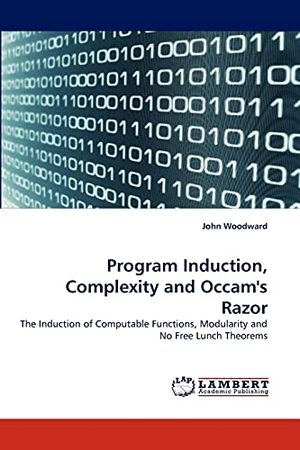Für statistische Zwecke und um bestmögliche Funktionalität zu bieten, speichert diese Website Cookies auf Ihrem Gerät. Das Speichern von Cookies kann in den Browser-Einstellungen deaktiviert werden. Wenn Sie die Website weiter nutzen, stimmen Sie der Verwendung von Cookies zu.
Cookie akzeptieren
John Woodward
Program Induction, Complexity and Occam''s Razor
- LAP LAMBERT Academic Publishing
- 2010
- Taschenbuch
- 156 Seiten
- ISBN 9783838389349
Search is a broad machine learning method where solutions are generated and tested. We focus on evolving computable functions with genetic programming. The literature reveals the complexity of programs is small, indicating a limitation of current methods. No Free Lunch is not valid for machine learning as simpler functions are represented more frequently which is also related to Occam's razor. We argue for Occam's razor, not on grounds of simplicity but probability. The complexity of a function depends on the primitives available. If the representation can build new primitives, then the complexity is independent of the primitives. We give bounds on these constants and argue these are the tightest. We examine
Mehr
Weniger
zzgl. Versand
in Kürze